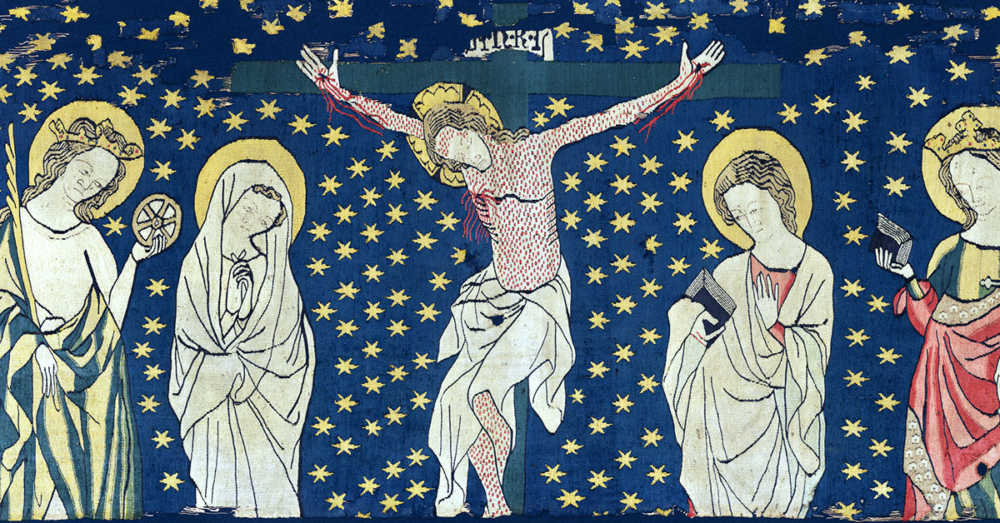We run our website the way we wished the whole internet worked: we provide high quality original content with no ads. We are funded solely by your direct support. Please consider supporting this project.

Why Did Jesus Cry Out that God Had Forsaken Him?
At the climax of Jesus’ suffering on the cross, Jesus cries out: “My God, my God, why have you forsaken me?” (Mt 27:46) It’s a jarring moment in the narrative. To forsake is to abandon. Did Jesus really believe that God had abandoned him? Was Jesus right about this? If he was right, what does that say about God? If he was wrong, what does that say about his connection with the father (about his standing within the trinity)?
Jesus had committed himself to doing the Father’s will, even though he anticipated it would involve a cup of great suffering (Mt 26:39). Paul tells us that, on the cross, “God made him who had no sin to be sin for us” (2 Cor 5:21). This means that, on Calvary, the all-holy God was totally saturated in our sin! Not only that, but Paul also teaches that, on the cross, “Christ redeemed us from the curse of the law by becoming a curse for us” (Gal 3:13). One who is cursed is estranged from God, which is why, when Jesus took on with our cursed state, he cried out: “My God, my God, why have you forsaken me?” (Mt 27:46). Jesus experienced the separation from God that we deserved, while experiencing abandonment on an infinitely more profound level than we could ever experience. And this means that, on Calvary, God, whose very nature is the perfect, loving union of Father, Son and Spirit, experienced the profound disruption of our God-forsakenness.
Yes, Jesus was abandoned, but the abandonment was a momentary horror that Jesus offered himself into. Furthermore, it was a rupture that overthrew Satan (1 John 3:8), and established our salvation (Hebrews 9:27-28). It was, to summarize, the greatest possible act of love.
Category: General
Tags: Cross, Crucifixion, The Cross
Verse: Matthew 27
Related Reading

The Cross and The Trinity
Out of love for humankind, Scripture tells us, Jesus emptied himself of his divine prerogatives, set aside the glory he had with the Father from before the foundation of the world, became a human being and bore our sin as he died a God-forsaken death on Calvary (Phil 2:5-7). Though Jesus remained fully God, he…

Knowing the Eternal God
If all our knowledge about God is to be oriented around the cross, as I argue in many places (see this post for instance), what does this mean for how we reflect on God’s transcendence? In other words, how can we speak of God’s eternal being since there obviously was no cross within God prior…

It’s All About the Crucified Christ
The world was created by Christ and for Christ (Col 1:16). At the center of God’s purpose for creation is his plan to unite himself to us in Christ, reveal himself to us through Christ, and share his life with us by incorporating us into Christ. We don’t know what this might have looked like…

The Rule of Love
The traditional confession that Scriptura sacra sui ipsius interpres (“Sacred Scripture is its own interpreter”) presupposes that there is one divine mind behind Scripture, for example. Moreover, Church scholars have traditionally assumed that Scripture’s unity can be discerned in a variety of concepts, motifs, themes and theologies that weave Scripture together. And to speak specifically of the…

What Is God’s Glory?
In John 12 we find a view of God’s glory that challenges many modern notions of what the glory of God means. In this passage, we find that Jesus was “troubled” by the cross that lay ahead to such an extent that he wanted to cry out, “Father, save me.” But Jesus quickly expresses his…

Could the God of Open Theism Have Foreknown the Crucifixion was Going to Happen? (podcast)
Greg talks about a really really really smart and good God in a really really really bad world against a not-quite-as-smart adversary. Episode 540 http://traffic.libsyn.com/askgregboyd/Episode_0540.mp3
